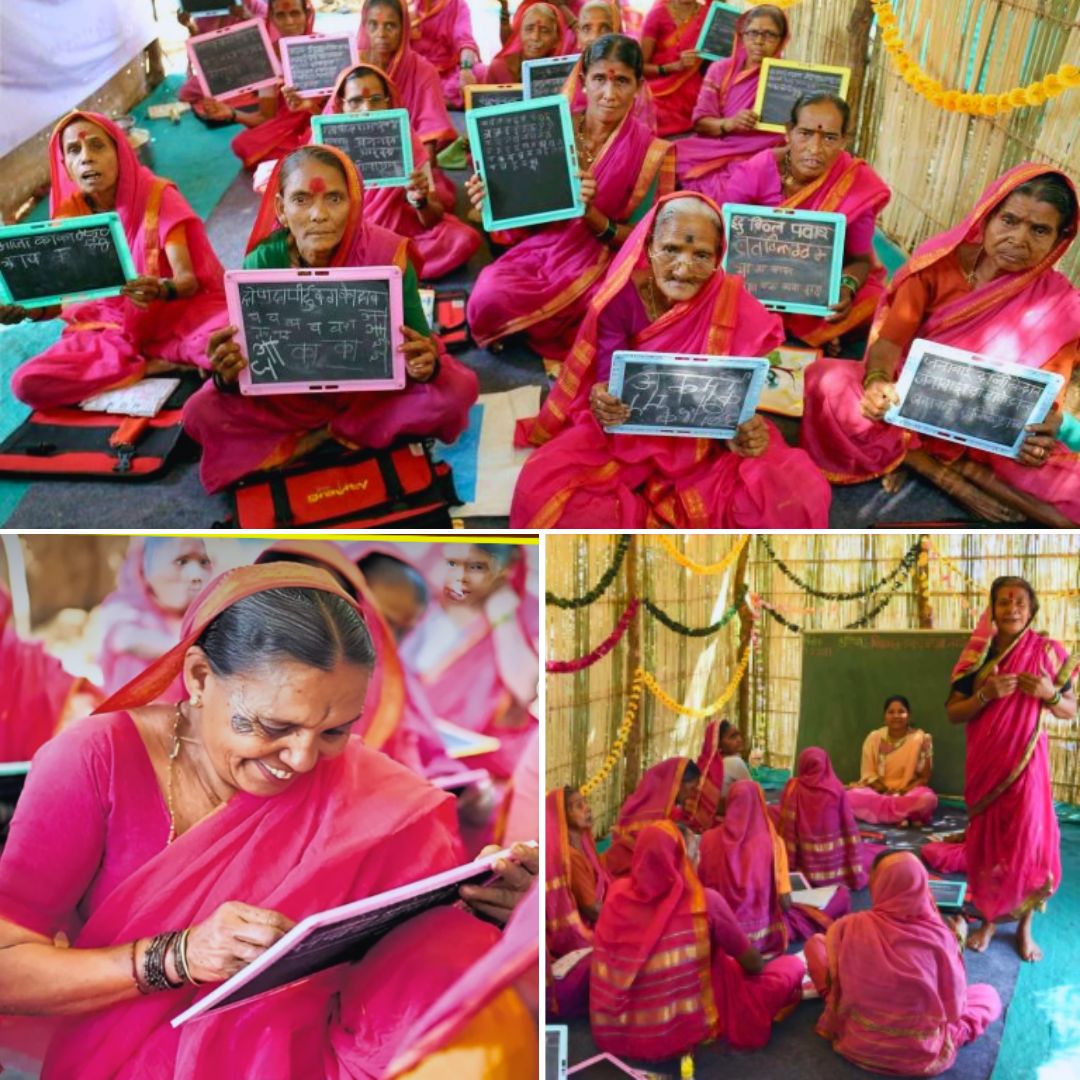In Fangane village, Thane district, Maharashtra, Ajibainchi Shala, or the School for Grandmothers, offers a transformative learning journey for women aged 60 to 90 who missed out on formal education in their youth. Established in 2016 by teacher Yogendra Bangar with support from Motiram Charitable Trust, this unique school enables these elderly women to learn reading, writing, and basic mathematics skills.
Clad in bright pink saris symbolising empowerment, they carry school bags and attend classes with dedication. The initiative not only boosts literacy but also restores dignity and independence as these grandmothers move from relying on thumbprints to confidently signing official documents.
The program has received strong backing from the local community and officials, who recognise its role in social upliftment and inclusive education.
A Unique Classroom Experience
Every day, the courtyard of Fangane’s local Zilla Parishad School becomes a vibrant classroom where these grandmothers recite the Marathi alphabet, practice writing on slates, and engage in elementary arithmetic exercises. Under the guidance of teacher Yogendra Bangar and his team, they also learn about hygiene and sanitation, improving overall village health.
The bright pink nine-yard saris, chosen deliberately over traditional white widow attire, challenge social stigmas and highlight the students’ renewed status and respect in society. The teaching methods are adapted to the learners’ needs-for instance, a 92-year-old student receives hand-holding support for writing as her hands tremble.
Teacher Sheetal More, who instructs many of these women, emphasises equal encouragement within the class to motivate all students collectively. The strong community support bolsters the school’s atmosphere of encouragement and achievement.
Roots and Impact in the Village
Yogendra Bangar started Ajibainchi Shala after noticing the severe educational gaps faced by elderly women in his rural community. The school began on International Women’s Day, with land kindly loaned by a local family and essential learning materials donated by the Motiram Charitable Trust. Since its inception, the school has achieved a remarkable 100% literacy rate among its participants.
Alongside literacy, the school’s hygiene awareness campaigns have contributed to Fangane becoming a defecation-free village, reflecting the broader social change spurred by this grassroots initiative. The school also confronts stereotypes related to age and gender in education, proving that learning is not bound by timelines or societal expectations.
The Logical Indian’s Perspective
Ajibainchi Shala shows that education is a lifelong right essential for dignity, empowerment, and social inclusion. It serves as an inspiring model for how community-driven initiatives can rectify historical neglect and create positive change, particularly for marginalized groups such as elderly women.
The Logical Indian applauds this visionary effort and urges policymakers and communities to replicate and scale such programmes nationwide to ensure no one is left behind in the journey of learning.












